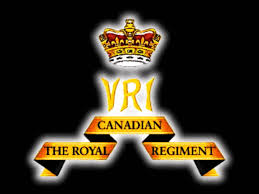On 14 December 1995 North Atlantic Council launched the largest military
operation ever undertaken by the Alliance, Operation Joint Endeavour. Based
on UN Security Council Resolution 1031, NATO was given the mandate to
implement the military aspects of the Peace Agreement. A NATO-led
multinational force, called the Implementation Force (IFOR), started its
mission on 20 December 1995. IFOR was given a one-year mandate. After the
peaceful conduct of the September 1996 elections, IFOR successfully
completed its mission of implementing the military annexes of the General
Framework Agreement for Peace. However, it was clear that much remained
to be accomplished on the civil side and that the political environment would
continue to be potentially unstable and insecure. On 25-26 September, one
week after the Bosnian elections NATO Defence Ministers concluded that the
Alliance needed to re-assess how it might continue to provide support for the
establishment of a secure environment after the end of IFOR's mandate in
December. The role of IFOR (Operation Joint Endeavour) was to implement
the peace. The role of SFOR (Operation Joint Guard / Operation Joint Forge) is
to stabilise the peace. The difference between the tasks of IFOR and SFOR is
reflected in their names. 12 December 1996, SFOR was authorised to
implement the military aspects of the Peace Agreement as the legal
successor to IFOR. Like IFOR, SFOR operates under Chapter VII of the UN
Charter (peace enforcement). Awarded for :
Thirty days continuous or accumulated service in direct support of
NATO operations, on land, at sea or in the air spaces of the Former
Yugoslavia, Albania, the Former Republic of Macedonia, and the
Adriatic Sea (the theatre of operations) commencing 1 July 1992 and
ending 31 December 2002; or
Ninety days continuous or accumulated service commencing 1 July
1992 and ending 31 December 2002, in the territories of Italy, Greece,
Hungary and Austria, in direct support of the NATO operations in the
Former Yugoslavia (the adjacent area).
Tour numerals are awarded:
On completion on an additional 180 days service in the theatre of
operations; or
On completion on an additional 540 days service in the adjacent area.
This medal was replaced on 1 January 2003, by the Non-Article 5 NATO Medal,
for Operations in the Balkans. Personnel arriving in theatre before 3
December 2002 count their time towards this medal and its associated tour
numerals until the end of the deployment. Personnel arriving in-theatre on or
after 3 December 2002 count their time towards the Non-Article 5 NATO
Medal for Operations in the Balkans. No personnel can receive the two
medals for the same deployment regardless of its duration. Members serving
with or in support of OP SHARP GUARD between 15 June 1993 to 19 June 1996,
may qualify for this medal, provided they have served 30 days at sea or in the
air space above the Adriatic Sea (the Area of Operation). Members serving
with or in support of OP DENY FLIGHT between 12 April 1993 to 20 December
1995, may qualify for this medal, provided they have served 30 days in the
Area of Operation or 90 days in the adjacent area in direct support of NATO
operations. Aircrew will accumulate one day service for the first sortie flown
on any day in the Area of Operation. Additional sorties flown on the same day
receive no further credit. This requirement exists for support as well as
combat aircraft, support aircraft including tanker, airlift and surveillance
platforms.

